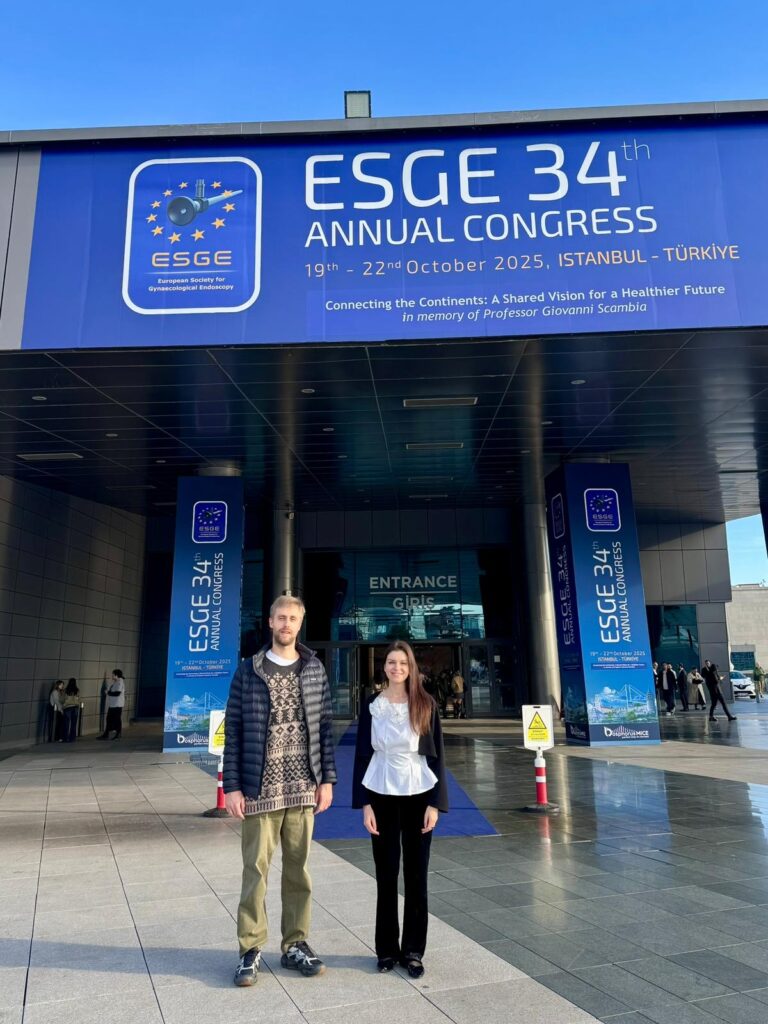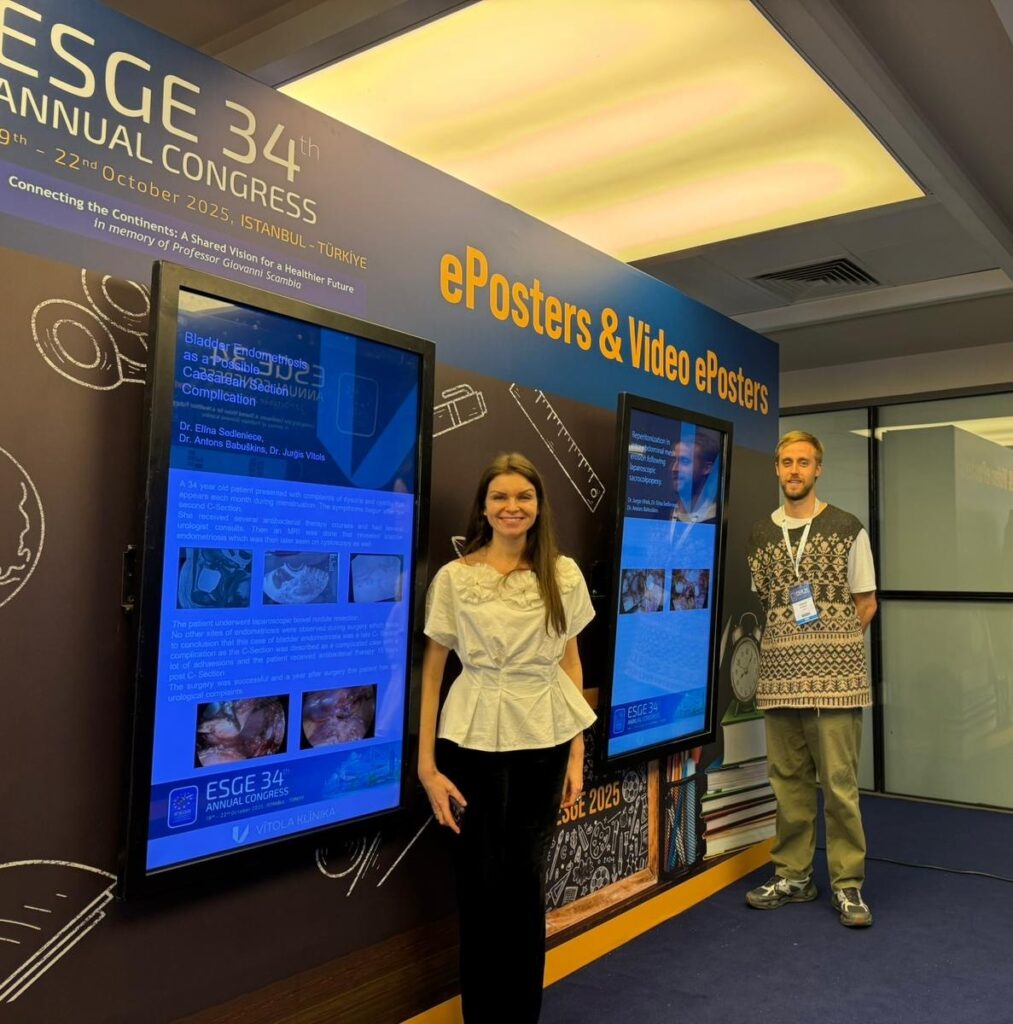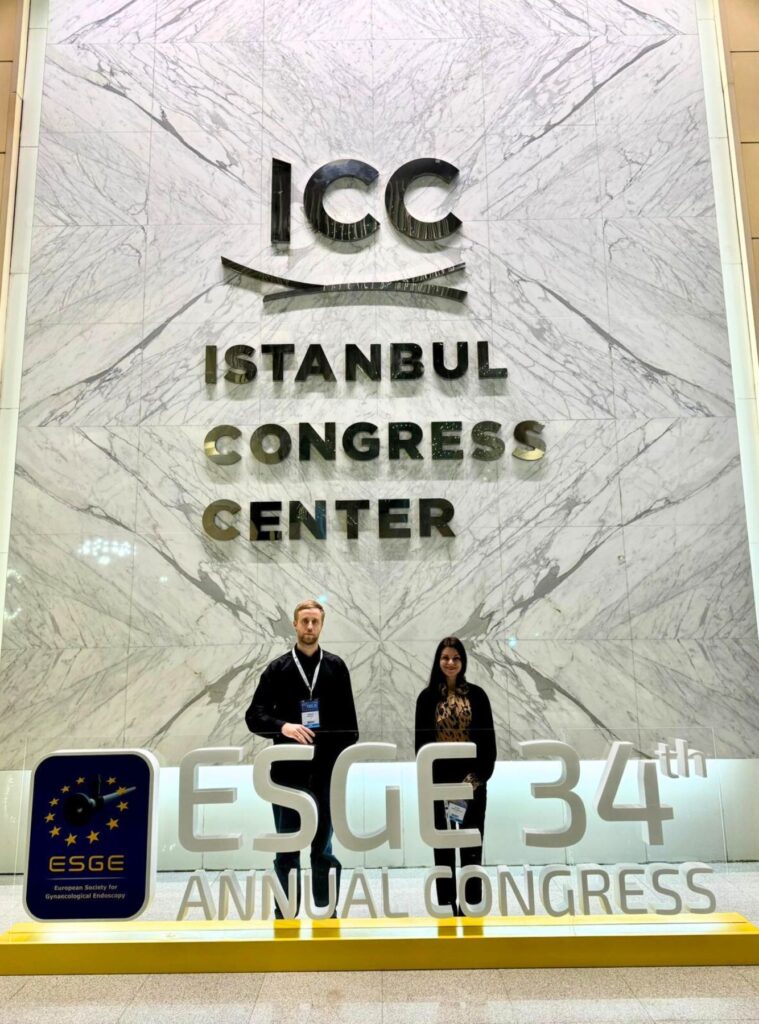In mid-October, the 34th ESGE (European Society for Gynaecological Endoscopy) Congress took place in Istanbul – the largest congress in Europe dedicated specifically to minimally invasive gynaecological surgery such as laparoscopy and hysteroscopy.
Once a year, the congress brings together all of the leading gynaecological endoscopy specialists not only from Europe, but from all over the world. This year, the congress was dedicated to two legendary physicians who are sadly no longer with us – Professor Giovanni Scambia, who developed one of the world’s leading gynaecological endoscopy centers in Rome, and Professor Jacques Hamou (France), considered one of the fathers of modern hysteroscopy.
The congress covered a very broad range of topics with at least six parallel sessions – with the main focus on techniques, innovations, and experience in minimally invasive treatment methods for gynaecological conditions. It should be mentioned that a highly anticipated and integral part of such congresses is live surgery viewing, which helps compare one’s own practice on the global stage and pick up various useful surgical tips for everyday work, with the goal of continuously improving treatment outcomes.
From Vītola klīnika in the congress participated Dr. Elīna Sedleniece and Dr. Jurģis Vītols. Both doctors attended sessions and also presented video posters. They shared their experience in the surgical treatment of gynaecological conditions – endometriosis and pelvic organ prolapse, which are also central focus areas at Vītola klīnika. "It’s always a pleasure to meet international colleagues at these congresses – doctors previously visited and trained with to exchange updates and discuss interesting cases from our own practice. It was especially heartwarming to receive so many congratulations from foreign colleagues on the opening of Vītola klīnika" – Dr. Jurģis Vītols.
The key insights the doctors brought back from the congress: minimally invasive gynaecological surgery is a very important part of treatment for various gynaecological conditions. It plays a particularly significant role in the care of patients with endometriosis, where high-quality and timely surgery greatly affects the patient’s future quality of life, especially for young patients diagnosed at a very early age. And of course, the robot – just a fancy toy or a tool with real application? But more on that another time. To your health, and see you at Vītola klīnika!



